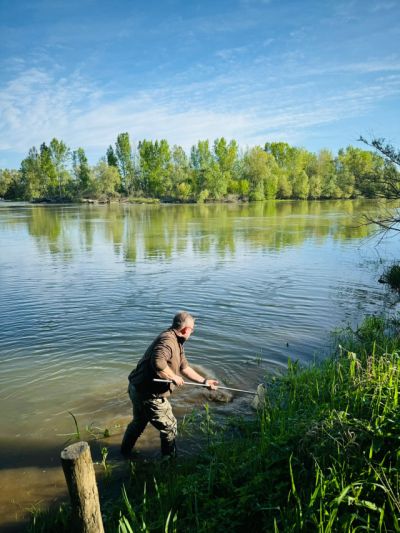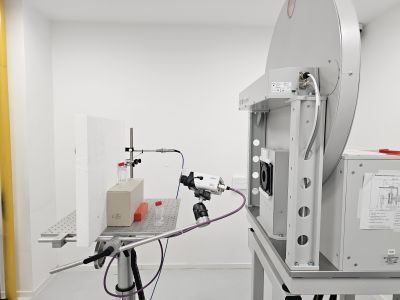Project type:
Scientific research project
Scientific area:
Interdisciplinary (natural, biomedical, biotechnical, and computer-information sciences)
Project title:
Ecological, biological and dosimetric aspects of ionizing radiation: exposure and protection
Acronym:
EBDIZ
Holder:
Institute for Medical Research and Occupational Health (IMROH), Ksaverska cesta 2, Zagreb, Croatia
MB 03270475 | OIB 30285469659
: www.imi.hr
Leader:
dr. sc. Ana Marija Marjanović Čermak, PhD, Radiation protection Division, IMROH
Duration:
1 Jan 2024–31 Dec 2027
Source of funding:
European Union – Next Generation EU
Program Contract of 8 Dec 2023, Class: 643-02/23-01/00016, Reg. no. 533-03-23-0006
Funding: 341.957,00 EUR

The aim of the project
The goal of the project is to continue and significantly improve the institute’s previous research on various aspects of the impact of ionizing radiation on the environment and human health. This ensures permanent competence in that area, not only from a scientific point of view, but also in terms of protecting the entire society from existing and potential radiological threats. The project brings together the three most important areas of research in a complementary way – radioecology, radiobiology and dosimetry – and enables a comprehensive approach to the problem of ionizing radiation to which humans and biota are exposed. The main goal of the project is scientific research that results in scientific publications in competitive journals, training of staff with the potential to produce doctoral theses and other types of dissemination of scientific results (eg at scientific meetings or through various media). Other goals are the development of measurement methods and technologies in the field of ionizing radiation detection and popularization and educational activities.

Radioecology
Sampling bioindicator organisms and elements of food chains and measuring the activity of anthropogenic and natural radionuclides in them.
Study of correlations of measured activities in the mentioned samples and in inorganic components of the environment (air, soil, water) through concentration ratios.
Study of correlations of agronomic and other methods of food production with human and animal nutrition
Radiobiology
Establishing a cell culture of primary cells isolated from laboratory animals that will serve as an in vitro model for research
Analysis of the impact of ionizing radiation on the health and metabolism of organisms sampled from the environment
Analysis of the response of primary cells and cell lines to ionizing radiation – changes in metabolic activity, oxidation status, cytoskeleton dynamics, and cell migration and differentiation processes
Establishment of a scientific-research group that will conduct interdisciplinary research in the field of applications of low doses of ionizing radiation
Radiobiology
The introduction and development of new OSL dosimetry methods will enable a reduction in measurement unreliability and a reduction in the probability of human error when reading dosimeters, because unlike dosimeters based on thermoluminescence, on which the research group’s current methods are based, OSL technology enables non-volatile reading of sensitive elements. OSL technology will bring advantages when measuring pulse fields of ionizing radiation (dominant in medicine) and show better performance than the most modern commercially available electronic dosimeters. Monte Carlo simulations of particle transport through matter will enable calculation of the dose delivered to radiobiological samples using standard diagnostic X-ray beams.
